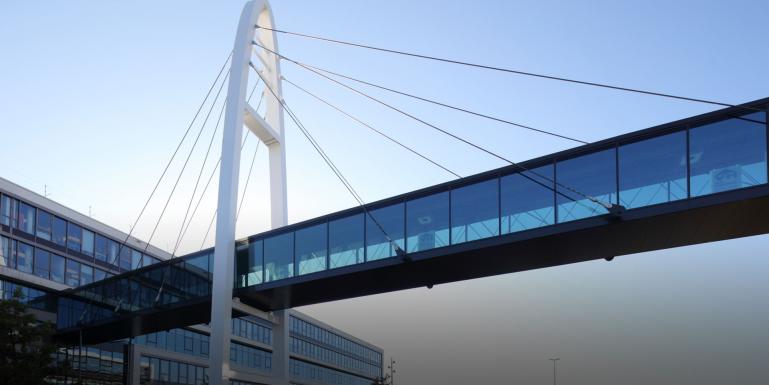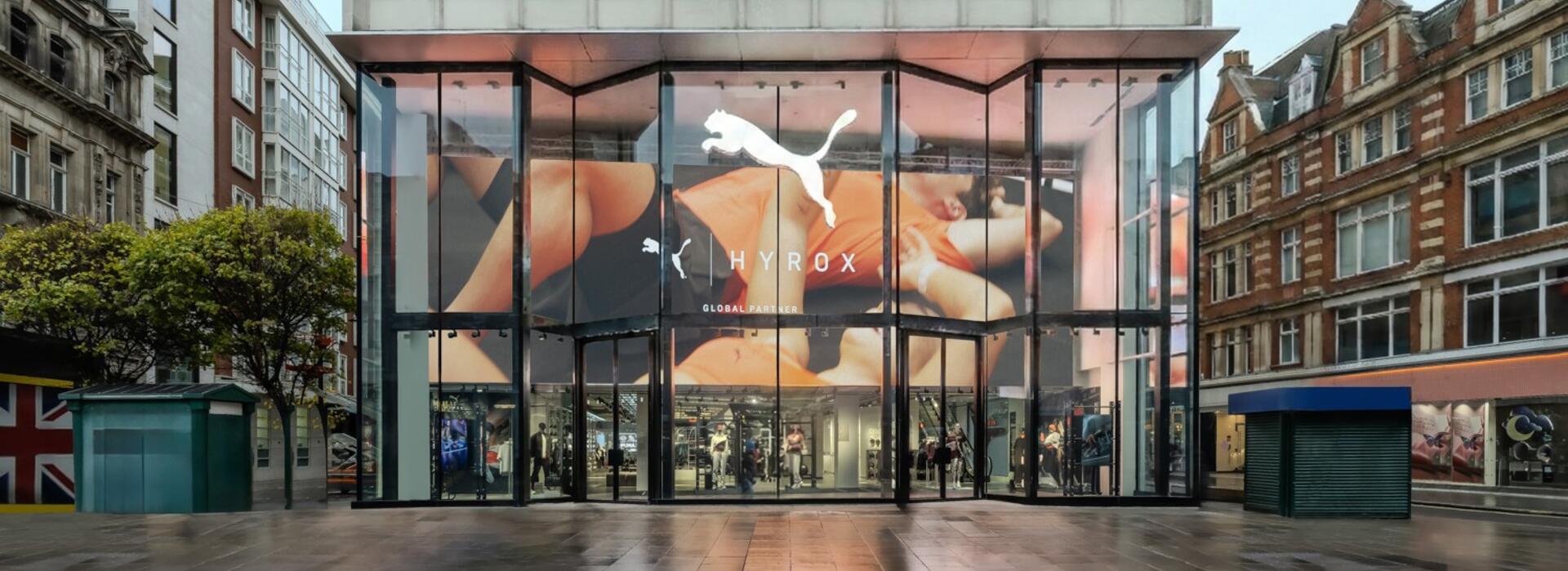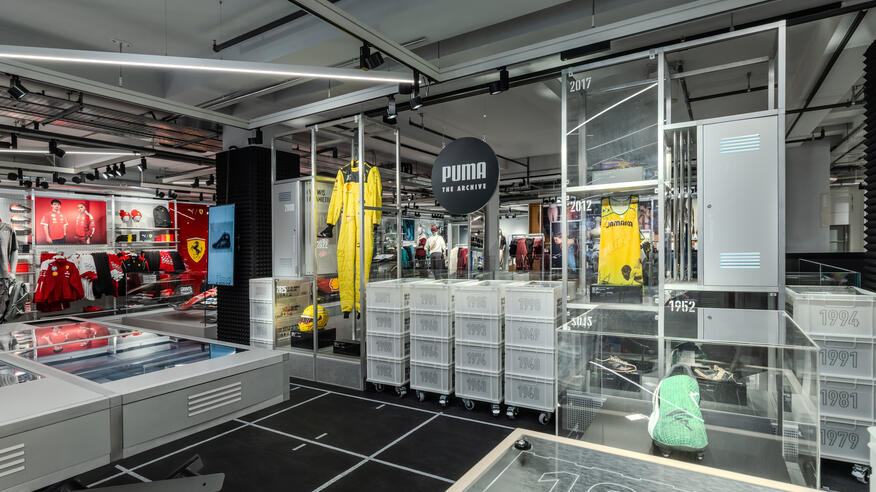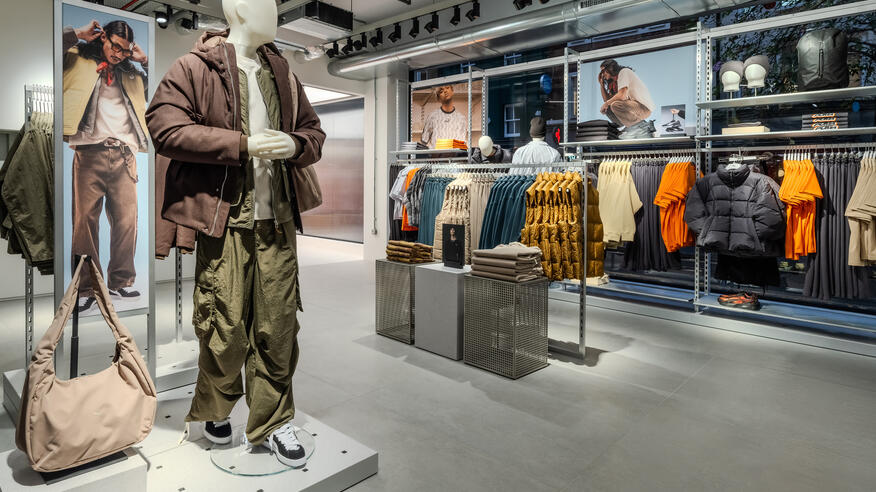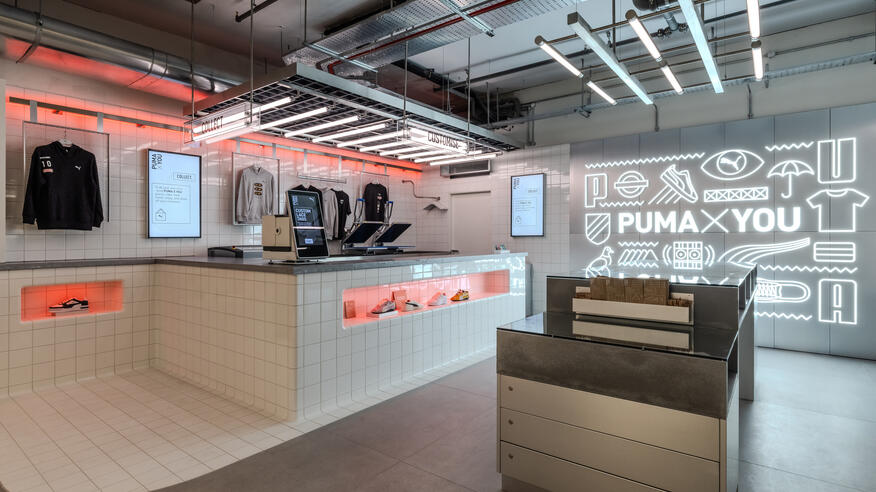Nine Months 2025
Sales
After sales remained roughly flat in the first half of 2025, sales experienced a pronounced deceleration in the third quarter, as outlined above. Consequently, sales in the first nine months of 2025 decreased by 4.3% (ca) to € 5,973.9 million with a decline across all regions and product divisions. Currencies, especially U.S. Dollar, Mexican Peso and Argentine Peso, presented a headwind and negatively impacted sales in euro terms by approximately € 288 million (sales growth reported: -8.5%).
PUMA’s Wholesale business declined by 8.6% (ca) to € 4,256.3 million, driven by softness in North America, Greater China and Europe. The Direct-to-Consumer (DTC) business increased by 8.4% (ca) to € 1,717.6 million, driven by 14.2% (ca) growth in e-commerce and a 5.2% (ca) increase in owned & operated retail stores. This resulted in an increased DTC share of 28.8% (9M 2024: 25.5%).
From a regional perspective, sales in the EMEA region decreased by 1.9% (ca) to € 2,574.0 million. The Americas region recorded a sales decline of 6.2% (ca) to € 2,211.7 million, while sales in the Asia/Pacific region decreased by 5.5% (ca) to € 1,188.1 million.
Among product divisions, sales in Footwear decreased by 1.1% (ca) to € 3,292.9 million. Apparel decreased by 8.7% (ca) to € 1,827.6 million and Accessories decreased by 6.1% (ca) to € 853.4 million.
Profitability
The gross profit margin declined by 130 basis points to 46.1% (9M 2024: 47.4%). Increased promotional activity, inventory reserves and currency effects were a headwind. This was partially offset by tailwinds from sourcing and a favourable distribution channel mix.
Operating expenses (OPEX), excluding one-time costs, increased by 2.8% to € 2,670.1 million (9M 2024: € 2,598.0 million). The increase was mainly due to the continued growth of the DTC business, especially e-commerce, and higher depreciation & amortisation (D&A) from investments in DTC and infrastructure and accounts receivable write offs of around € 20 million in the second quarter. Higher OPEX and a decline in sales, partially offset by currency-related tailwinds on the OPEX ratio, led to a 490 basis points increase of the OPEX ratio to 44.7% (9M 2024: 39.8%).
Adjusted EBIT, excluding one-time costs, decreased to € 102.0 million (9M 2024: € 513.2 million) due to the sales decline in the first nine months of 2025, a lower gross profit margin and higher OPEX. PUMA incurred one-time costs of € 112.7 million related to the cost efficiency program and a goodwill impairment in the second quarter. Consequently, the reported EBIT came in at € -10.7 million (9M 2024: € 513.2 million) and the EBIT margin at -0.2% (9M 2024: 7.9%).
The financial result decreased by 14.0% to € -132.5 million (9M 2024: € -116.2 million), mainly due to higher net interest expenses. Despite lower earnings before taxes compared to the previous year period, taxes on income came in at € -136.8 million (9M 2024: € -99.2 million). This was mainly due to deferred tax assets write-offs in the U.S. and China in the second and third quarter of 2025. Net income attributable to non-controlling interests amounted to € -29.0 million (9M 2024: € -40.6 million), as a result of a softer socks and bodywear business in the U.S.
Consequently, net loss came in at € -308.9 million (9M 2024: net income of € 257.1 million) and earnings per share amounted to € -2.09 (9M 2024: € 1.72).
Balance Sheet
The working capital increased by 2.2% to € 1,924.6 million (30 September 2024: € 1,883.5 million). Inventories increased by 17.3% reported and 24.3% currency adjusted to € 2,124.1 million (30 September 2024: € 1,811.3 million) partly driven by inventory takebacks from wholesale partners to clean up distribution. This was partially offset by a reduction in purchase orders, implemented as a measure to slow down inventory growth and to avoid additional supply. To bring back inventories to a more normalised level until the end of 2026, PUMA will execute product clearance through its outlets and wholesale partners, supported by targeted promotional initiatives. Trade receivables decreased by 18.1% to € 1,241.2 million (30 September 2024: € 1,515.6 million), mainly due to lower sales. Trade payables decreased by 2.1% to € 1,270.6 million (30 September 2024: € 1,297.9 million) reflecting reduced purchasing orders in the third quarter. Net debt increased to € 1,205.2 million (30 September 2024: € 746.0 million), mainly driven by increased bank liabilities to support the operating business and finance working capital.
Cash flow
The free cash flow came in at € -43.0 million in the third quarter of 2025 (Q3 2024: € -83.0 million), showing an improvement compared to the third quarter of 2024. This led to a free cashflow in the first nine months of 2025 of € -685.8 million (9M 2024: € -287.4 million). As part of its ongoing commitment to financial resilience and operational efficiency, PUMA is implementing measures to safeguard cash flow, especially optimising its working capital.
PUMA United
PUMA United is a partnership between PUMA and United Legwear, which mainly focuses on the sale of socks and bodywear in the U.S. and Canada. PUMA holds a 51% stake in the company. As part of the ongoing reset measures and efforts to optimise the PUMA distribution network, PUMA is considering moving from a partnership model to a licensing model in 2025. The PUMA United business is currently fully integrated in the operating segment "Region North America".
Outlook FY 2025
Amid ongoing volatile geopolitical and macroeconomic volatility, PUMA anticipates that both sector-wide and company-specific challenges will significantly impact performance for the remainder of 2025. Key factors include a muted brand momentum, shifts in channel mix and quality, the impact of U.S. Tariffs, and elevated inventory levels.
PUMA confirms its full-year 2025 outlook. Sales on a currency-adjusted basis are forecast to decline by a low double-digit percentage, a reported EBIT loss is expected and capital expenditures of around € 250 million.
